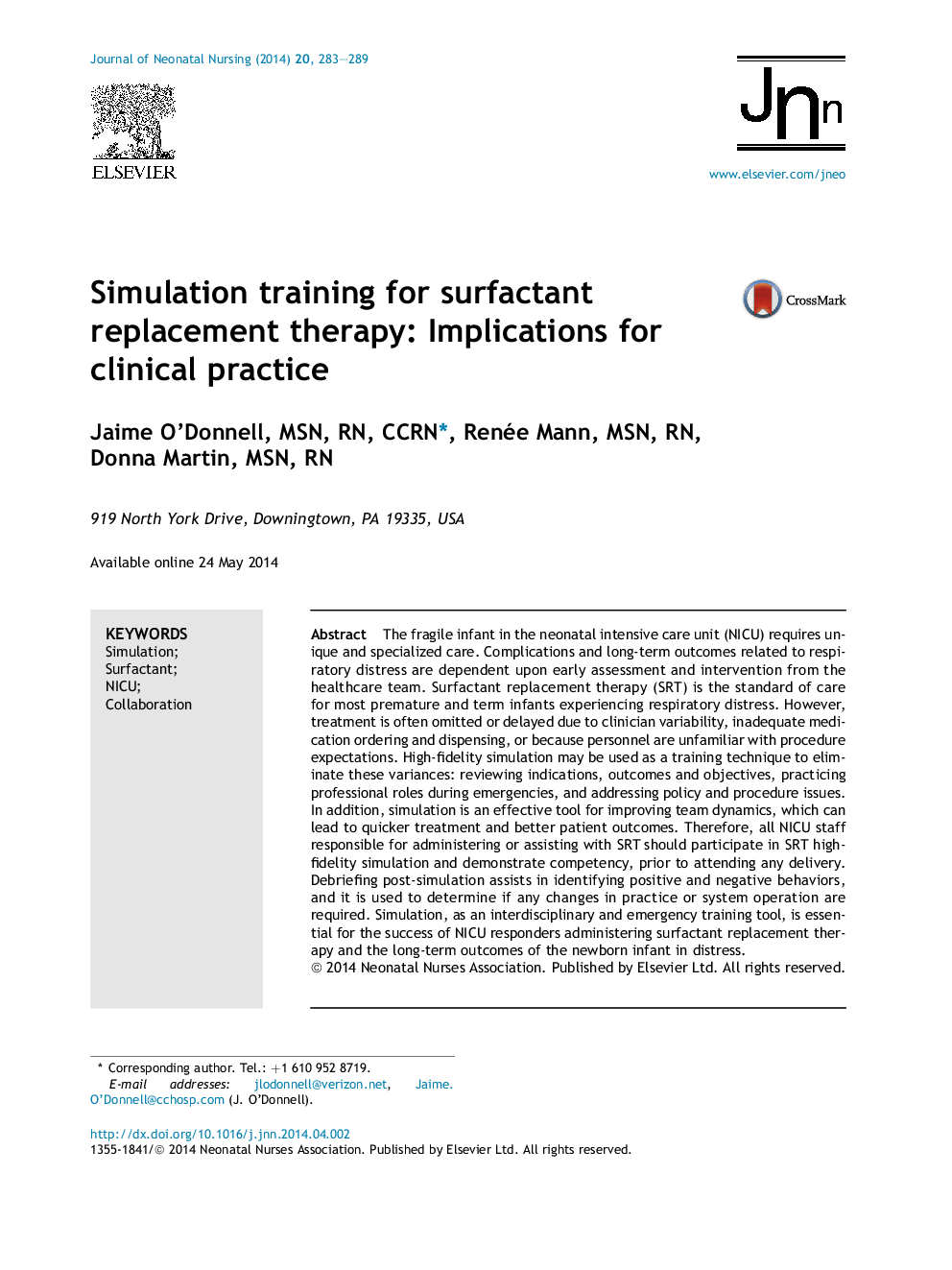| Article ID | Journal | Published Year | Pages | File Type |
|---|---|---|---|---|
| 2631415 | Journal of Neonatal Nursing | 2014 | 7 Pages |
Abstract
The fragile infant in the neonatal intensive care unit (NICU) requires unique and specialized care. Complications and long-term outcomes related to respiratory distress are dependent upon early assessment and intervention from the healthcare team. Surfactant replacement therapy (SRT) is the standard of care for most premature and term infants experiencing respiratory distress. However, treatment is often omitted or delayed due to clinician variability, inadequate medication ordering and dispensing, or because personnel are unfamiliar with procedure expectations. High-fidelity simulation may be used as a training technique to eliminate these variances: reviewing indications, outcomes and objectives, practicing professional roles during emergencies, and addressing policy and procedure issues. In addition, simulation is an effective tool for improving team dynamics, which can lead to quicker treatment and better patient outcomes. Therefore, all NICU staff responsible for administering or assisting with SRT should participate in SRT high-fidelity simulation and demonstrate competency, prior to attending any delivery. Debriefing post-simulation assists in identifying positive and negative behaviors, and it is used to determine if any changes in practice or system operation are required. Simulation, as an interdisciplinary and emergency training tool, is essential for the success of NICU responders administering surfactant replacement therapy and the long-term outcomes of the newborn infant in distress.
Related Topics
Health Sciences
Nursing and Health Professions
Midwifery
Authors
Jaime MSN, RN, CCRN, Renée MSN, RN, Donna MSN, RN,
